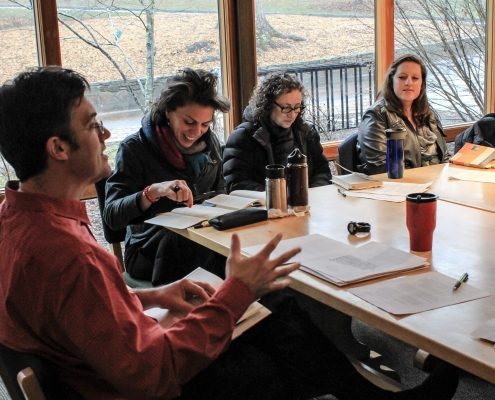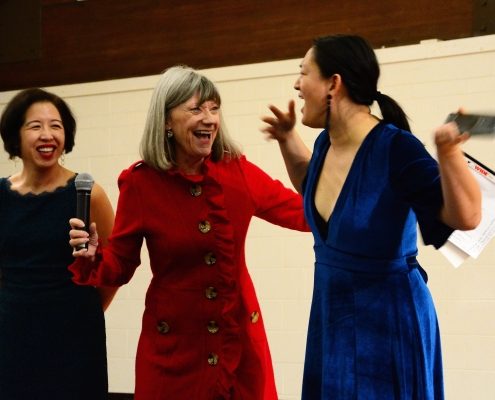Lectures and Workshop
A typical day begins with lectures on literature and craft; attended by all faculty and students, these serve as the common texts of the residency. Through the genre-focused discussion classes presented by faculty and students about to graduate and through Bookshop (a four-hour seminar on a single text) students develop their analytical skills and add to their literary frames of reference.
Workshop provides a practicum in criticism as well as a means of a broad range of feedback for works in progress. Each workshop group of 8-10 includes students from each stage of progress throughout the Program. Faculty members rotate among the standing groups in pairs–no single aesthetic can dominate, and any individual student has a chance to work with most of the faculty. Each student is assigned one hour of workshop discussion for his/her worksheet material, which has been submitted and distributed to workshop members in advance of the residency for careful preparation of the texts.
Each day ends with the evening readings, initially by faculty and, during the second half of the residency, by the students about to graduate.
Throughout the residency, each student prepares a written narrative accounts responding to everything he/she/they attend. This first evaluative occasion helps the student summarize and articulate useful ideas for their own writing and reading. The Residency Evaluation (familiarly known as “the Green Sheets”) enters into the student’s record work done in literary and contemporary letters, practical criticism and creative writing.
Mentorship for Graduate Students
New students gather as a cohort for orientation with the director and Academic Board Chair on arrival day, for a lunch discussion two days later, for an instruction session on the annotation (the brief craft-based analysis students will write throughout their enrollment), and, near the end of the residency, for a session focused on the semester ahead.
Throughout the residency, the Director and Board members meet with each semester cohort to discuss expectations for the term: deadlines, guidelines for preparing the essay and thesis manuscript, instructions for completing evaluation forms, and details about the exchange with the supervisor. In addition, the Director meets individually with each student entering the essay or final semesters, to review and approve his/her/their Semester Project plan.

















